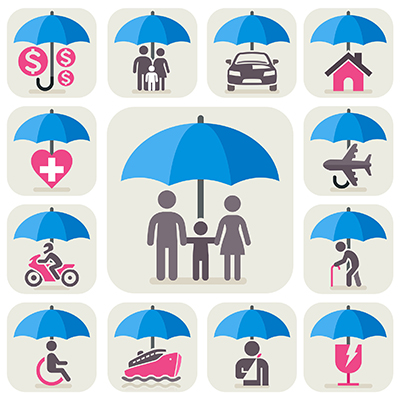Do young people need to buy insurance?
After you join social work from school, you may find that many of your colleagues and friends also buy insurance. At the same time, many people may have been invited out for dinner by their old classmates or friends. It turned out that they were insurance consultants and wanted to recommend insurance products.
Of course, we can learn about different insurance products through insurance consultants and consider our own needs. But what factors does buying insurance depend on? How should you consider it? Is it because of favors and just buying insurance casually just to help a friend “make a bill”?
If you have some knowledge about insurance, it will help you consider this issue.

Unforeseen risks
Many people may think that they are young, in good health, and have no disease or pain, so they do not need to buy insurance, but the function of insurance is to protect against some risks that we may not foresee.
Insurance can provide financial protection against emergencies and other risks in life, such as death, serious illness, accidents, etc. Purchasing insurance is equivalent to transferring part of the financial risk to the insurance company. If you are not insured, you will have to bear the financial consequences of emergencies, such as medical expenses. Therefore, adding insurance to your financial plan can play a certain role in protecting yourself, your family, and your personal assets.
Life insurance is a very common insurance product that aims to provide financial protection to the policyholder’s family (or designated beneficiary) after his death. Of course, in addition to illness, various accidents may also lead to death. Therefore, generally speaking, it is beneficial to purchase appropriate insurance, especially for those who need to support their families financially or have debt burdens (such as mortgage loans).
4 considerations when buying insurance
1. Assess your needs
Before purchasing insurance, first carefully consider the purpose of purchasing insurance, and then evaluate the protection and insurance amount that best meet your needs, rather than buying a “friendship policy”.
For example, if you want your family to receive a sum of cash to make ends meet after your death, you may consider life insurance. In terms of the insured amount, you can first calculate your monthly expenses, including household expenses, supporting parents, etc., then estimate the number of years to pay these expenses, and finally calculate the initial life insurance amount.
Many employers in Hong Kong provide group insurance and medical benefits to their employees. Find out about the relevant coverage from the company you are employed by, and then consider your insurance needs overall. In addition, insurance needs will also change with different stages of life. For example, after getting married or having children, you may need a larger amount of protection, so you need to review your insurance plan regularly.
2. Understand different insurance products
There are many types of insurance. When considering buying insurance, you should first understand the characteristics of different types of insurance products .
3. Choose the right insurance consultant and shop around
After determining the protection you need, you can choose a suitable insurance consultant, understand the functions and coverage of different products, and discuss which products are suitable for you. There are many insurance companies in Hong Kong. When purchasing insurance, we should refer to the proposals and sales information of several insurance companies and compare them in detail before making a decision.
Before purchasing insurance, you should clearly understand the policy terms and coverage from your insurance consultant. If you have any questions, you can check with the insurance company it represents to find the insurance plan that best suits you.
In addition, you must also understand that the insurance contract is a contract between the policy holder and the insurance company. Do not end the existing policy and sign a new policy with another insurance company because the insurance consultant changes jobs. Otherwise, it will cause financial losses and affect the affected people. Protect rights and interests.
4. Assess your own financial capabilities
A comprehensive insurance plan that includes life, savings, accident, medical, critical illness, etc. is certainly very comprehensive, but the premiums can be high. Generally speaking, the premium level depends on the amount and scope of the policy’s protection. Generally, the higher or more protection, the higher the premium you need to pay.
For young people who have just entered the workplace, their financial capabilities are relatively limited. When considering insurance products, they must carefully evaluate their financial capabilities and balance their income and expenses. Don’t forget that there are fees to buy insurance, and it may involve long-term expenses. If it is an insurance with a savings or investment component, you may need to pay high fees for early surrender, which will greatly impact your savings goal.
Young people can consider basic protection first and then add other protection coverage in the future if necessary. Personal insurance is a long-term financial commitment. If you fail to pay the premium and surrender the policy, you may lose the paid premium and fail to achieve the protection goal.



